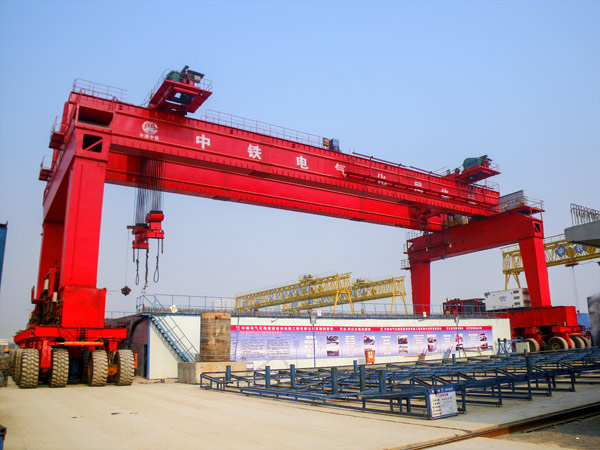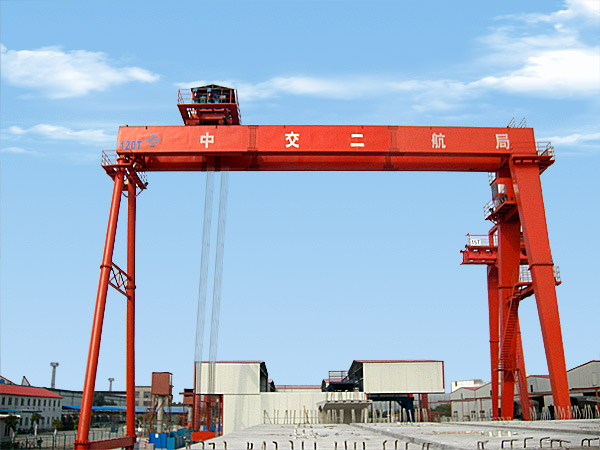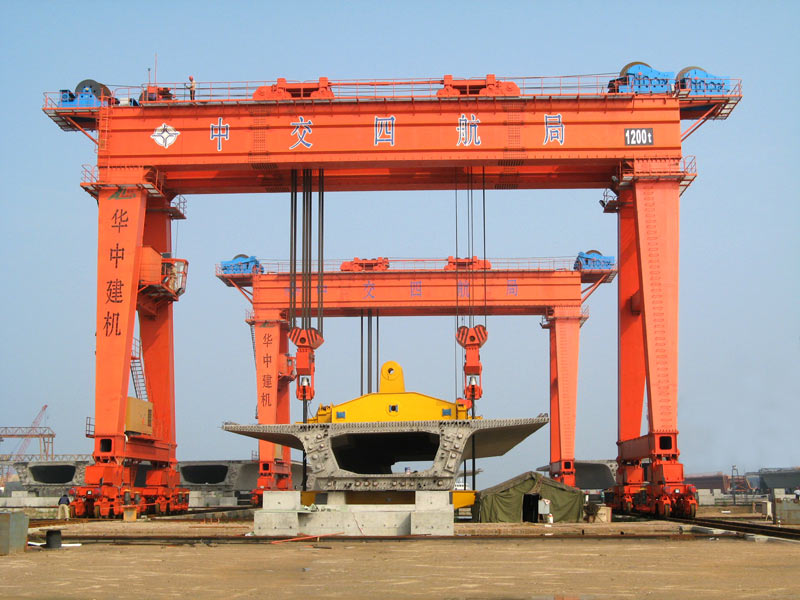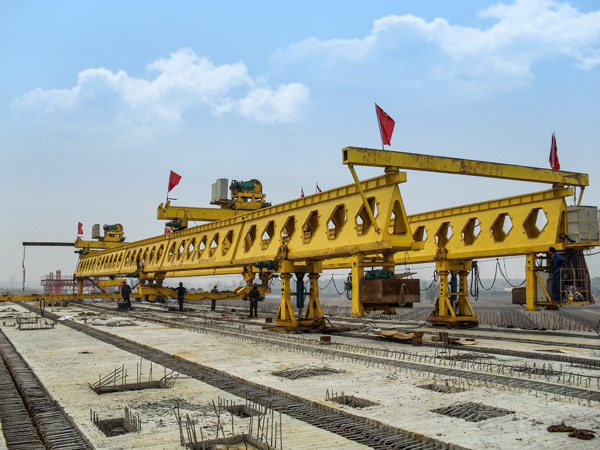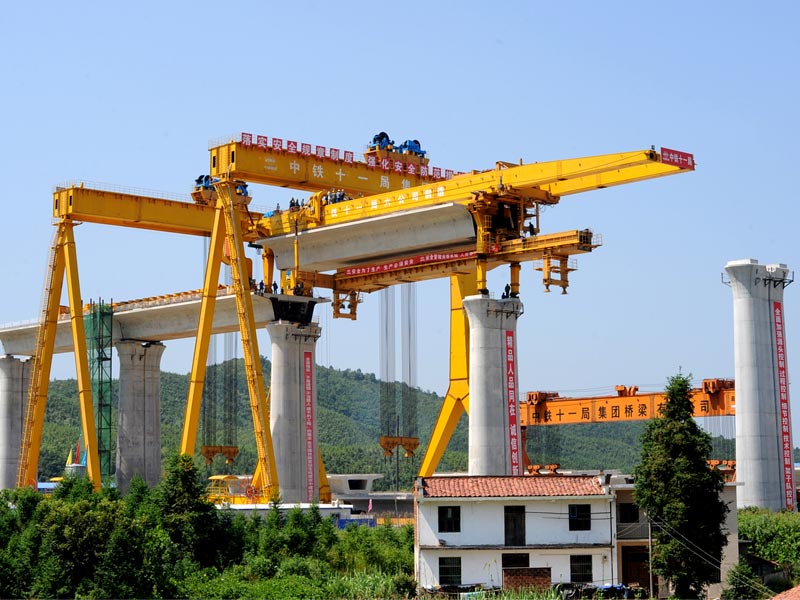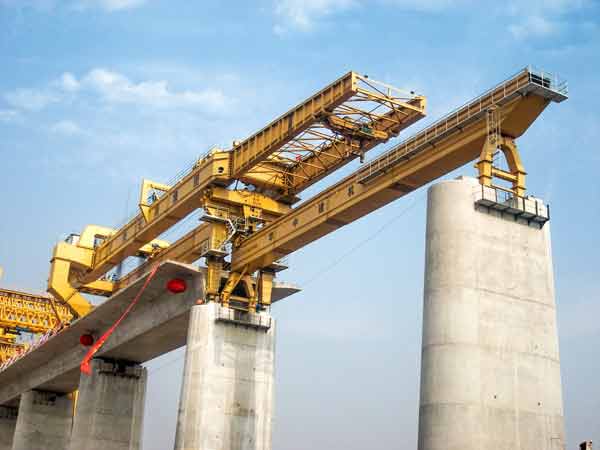How to Install the Rails of Gantry Crane
1. According to the position of design, we should check the end face, linearity and distortion before paving the rail. The installation baseline is confirmed before installation. The installation baseline of rail is equal to the positioning axis of crane beam.
2. When paving the rails, the inaccuracy of actual centerline of rail and steel girder shouldn’t exceed10mm and half of the width of web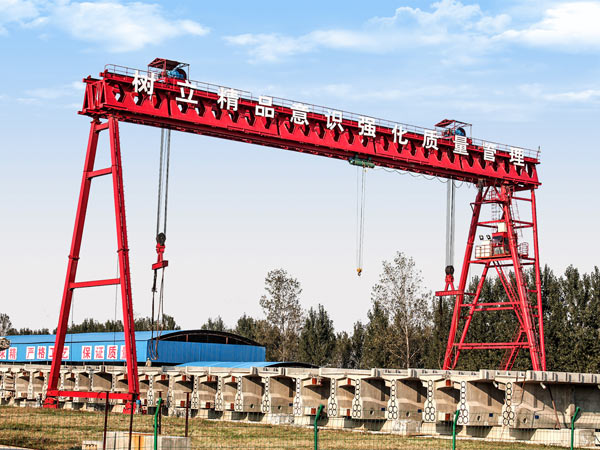 of steel girder.
of steel girder.
3. The rails are paved on the steel girder, the bottom of rail clings to the top of steel girder. When it has a gap and the length exceed 200mm, we should add a plate. The plate ≥100mm,the width is wider than the bottom 10-20mm, and each group plate shouldn’t exceed 3 layers. After padded, the plate and steel girder are fixed by welding.
4. The inaccuracy of horizontal location of actual centerline of rail and installation baseline, the general gantry crane shouldn’t exceed 5mm.
5.the span of rails >10m , the inaccuracy: ±3.0mm
6.when the span >10m, the permissible variation can be counted by the following form, but the maximum inaccuracy shouldn’t exceed ±15mm. △S=±[3+0.25(S-10)]:
△S-permissible variation of span of crane(mm)S- span of rail(m)
7. vertical inclination of the design position of top of rail, the general gantry crane ≤3/1000,each 2m measures a point, changes in level of the whole rail shouldn’t exceed 10mm.
8. the permissible variation benchmark’s elevation of top of rail, the general gantry crane is ±10mm. the relative relief of elevation of two parallel rails of the same section the general gantry crane is ±10mm.
9. The joint position of two parallel rails should stagger, and the staggered distance shouldn’t equal to the basal spur of the front and rear wheels.


